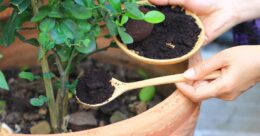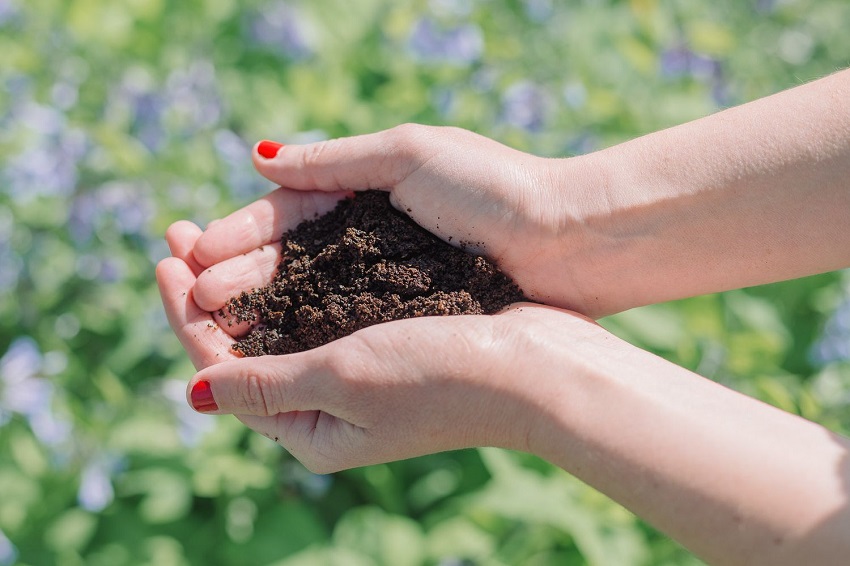Coffee is undoubtedly one of the most popular beverages worldwide. Its aroma, taste, and energizing properties make it a beloved morning ritual for millions of people. However, coffee has more to offer than just a delightful beverage. In recent years, there has been growing interest in the potential benefits of coffee grounds for various applications, including gardening and plant care. One intriguing question that arises is whether coffee grounds can effectively kill fungus. In this article, we will delve into this topic, exploring the potential antifungal properties of coffee grounds and their implications for plant health.
Understanding Fungus and Its Impact on Plants
Before we dive into the potential of coffee grounds as a fungicide, it’s important to understand the nature of fungus and its impact on plants. Fungi are a diverse group of organisms that can cause diseases in plants, leading to reduced crop yield and overall plant health. Common plant fungal diseases include powdery mildew, damping-off, and root rot, among others. These diseases can be detrimental to gardeners and farmers, as they can wipe out entire crops if not properly managed. Additionally, coffee grounds have been found to be effective in repelling gnats in plants coffee grounds, making them a useful tool for gardeners looking to protect their plants from these pesky insects.
The Role of Fungicides in Plant Disease Management
Fungicides are substances designed to control or eliminate fungal diseases. They are commonly used in agriculture, horticulture, and gardening to protect plants from the damaging effects of fungi. Traditional fungicides often contain synthetic chemicals that can be effective but may also have adverse environmental impacts. As a result, there is a growing interest in exploring natural alternatives that are both eco-friendly and effective in combating fungal diseases.
Coffee Grounds as a Potential Natural Fungicide
Coffee grounds have gained attention for their potential as a natural fungicide due to their chemical composition. They contain various compounds, including caffeine, phenols, and organic acids, which have been found to possess antifungal properties. Caffeine, in particular, has been shown to inhibit the growth of certain fungi by disrupting their cellular processes. This makes coffee grounds an intriguing option for those seeking alternative methods to control plant fungal diseases.
Research on Coffee Grounds and Fungal Control
Several studies have explored the effectiveness of coffee grounds in killing or suppressing fungal growth. One study conducted by researchers at the University of Hawai’i found that coffee grounds inhibited the growth of some fungal pathogens that commonly affect plants. Another study published in the Journal of Agricultural and Food Chemistry reported similar findings, suggesting that coffee extracts derived from spent coffee grounds exhibited strong antifungal activity against certain plant pathogens.
Application Methods and Considerations
To harness the potential antifungal properties of coffee grounds, it’s important to understand how to apply them effectively. Here are a few key considerations:
1. Composting with Coffee Grounds
Coffee grounds can be added to compost piles to enhance the overall health and fertility of the soil. The organic matter in the grounds provides nutrients and improves soil structure, while the antifungal properties help suppress the growth of certain fungal pathogens. It’s important to mix coffee grounds with other compost materials to maintain a balanced carbon-to-nitrogen ratio and prevent excessive acidity in the soil.
2. Direct Application to Soil
Coffee grounds can also be directly applied to the soil around plants. This method can help deter fungal diseases by creating an unfavorable environment for their growth. However, it’s crucial to avoid excessive application, as coffee grounds are acidic and can potentially disrupt the pH balance of the soil. A thin layer of coffee grounds around plants is typically sufficient to provide the desired antifungal benefits.
3. Compost Tea and Foliar Sprays
Another way to utilize coffee grounds is by brewing them into compost tea or preparing foliar sprays. Compost tea is created by steeping coffee grounds in water, allowing beneficial microbes to multiply and creating a nutrient-rich liquid fertilizer. Foliar sprays, on the other hand, involve diluting coffee extracts or brewed coffee and applying them directly to the leaves of plants. These methods provide a foliar application of the antifungal properties present in coffee grounds.
Considerations and Limitations
While coffee grounds show promise as a natural fungicide, it’s important to note that their effectiveness may vary depending on the specific fungal pathogens and plant species involved. Additionally, the concentration of antifungal compounds in coffee grounds can vary based on factors such as the coffee bean type, roast level, and brewing method. Therefore, further research is needed to determine the optimal application methods and dosage for different scenarios.
Conclusion
Coffee grounds possess interesting antifungal properties that make them a potential natural fungicide for controlling plant diseases. Their ability to inhibit fungal growth and their availability as a byproduct of daily coffee consumption make them an appealing option for gardeners and plant enthusiasts. However, it’s essential to approach their application with care and consider other factors such as soil pH and plant compatibility. By exploring the potential of coffee grounds as a natural fungicide, we can take steps towards more sustainable and eco-friendly plant disease management practices.


